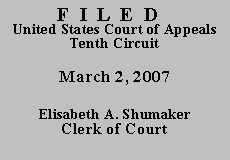

| UNITED STATES OF AMERICA,
Plaintiff-Appellee, v. SAMMY RODRIGUEZ-DELGADO, Defendant-Appellant. |
|
Under Hahn, we consider "(1) whether the disputed appeal falls within the scope of the waiver of appellate rights; (2) whether the defendant knowingly and voluntarily waived his appellate rights; and (3) whether enforcing the waiver would result in a miscarriage of justice." Id. at 1325. The miscarriage-of-justice prong requires the defendant to show (a) his sentence relied on an impermissible factor such as race; (b) ineffective assistance of counsel in connection with the negotiation of the appeal waiver rendered the waiver invalid; (c) his sentence exceeded the statutory maximum; or (d) his appeal waiver is otherwise unlawful and the error "seriously affect[s] the fairness, integrity or public reputation of judicial proceedings." Id. at 1327 (quotation omitted). The government's motion addresses these considerations, explaining why none undermines the appeal waiver here.
Mr. Rodriguez-Delgado opposes the government's motion solely on the ineffective-assistance component of the miscarriage-of-justice test: "As is stated in [Mr. Rodriguez-Delgado's] docketing statement, the ineffective assistance of counsel is [his] primary issue on appeal and is therefore not barred by the agreement as urged by the government." Appellant's Response to the Motion to Enforce Plea Agreement at 1; see Docketing Statement at 4, 6 (omitting formal designation of issues, but requesting oral argument "on complicated issues of ineffective assistance of counsel as well as other issues"). There are two basic deficiencies in this attempt to keep the present appeal alive.
Mr. Rodriguez-Delgado's conclusory reference to his legal representation gives no indication that his objection relates as it must to have any bearing on the enforcement of his appeal waiver to "ineffective assistance of counsel in connection with the negotiation of the appeal waiver render[ing] the waiver invalid." Hahn, 359 F.3d at 1327; cf. United States v. Porter, 405 F.3d 1136, 1144 (10th Cir.), cert. denied, 126 S. Ct. 550 (2005) (similarly refusing to void appeal waiver in light of alleged sentencing error, because "[t]he relevant question . . . is not whether [the] sentence is unlawful . . ., but whether . . . [the] appeal waiver itself [is] unenforceable" (emphasis added)). Without this specific connection to the appeal waiver, a generalized "objection about trial counsel's performance [is] insufficient to open the Hahn door for this appeal." United States v. Quintana-Navarette, 192 F. App'x 790, 793 (10th Cir. 2006); cf. United States v. Sarber, 196 F. App'x 673, 675 (10th Cir. 2006) (holding argument to circumvent appeal waiver based on claim of error untethered to waiver itself "is fundamentally misdirected" under principles clarified in Hahn and Porter).
Even if Mr. Rodriguez-Delgado intends to challenge counsel's performance in a respect materially relevant to the appeal waiver, this appellate proceeding is not the proper vehicle for that challenge. Because the record before us includes only formal representations by Mr. Rodriguez-Delgado reflecting the adequacy of his representation in the plea proceedings, any ineffective-assistance claim would have to rely on extra-record exchanges between counsel and client beyond our purview. Such a claim must be brought in a motion under 28 U.S.C. § 2255 rather than by appeal, United States v. Delacruz-Soto, 414 F.3d 1158, 1168 (10th Cir. 2005), and "[t]his rule applies even where a defendant seeks to invalidate an appellate waiver based on ineffective assistance of counsel," Porter, 405 F.3d at 1144 (citing Hahn, 359 F.3d at 1327 n.13). Indeed, Mr. Rodriguez-Delgado's plea agreement preserves his right to bring a § 2255 motion "on the issue of ineffective assistance of counsel." Plea Agreement at 5. Accordingly, we shall grant the government's motion to dismiss this appeal, without prejudice to the merits of any ineffective-assistance claims Mr. Rodriguez-Delgado may elect to pursue in collateral proceedings under § 2255.
The government's motion is granted and this appeal is DISMISSED. The mandate shall issue forthwith.
ENTERED FOR THE COURT
PER CURIAM
*. This panel has determined unanimously that oral argument would not materially assist the determination of this appeal. See Fed. R. App. P. 34(a)(2); 10th Cir. R. 34.1(G). The case is therefore ordered submitted without oral argument. This order and judgment is not binding precedent, except under the doctrines of law of the case, res judicata, and collateral estoppel. It may be cited, however, for its persuasive value consistent with Fed. R. App. P. 32.1 and 10th Cir. R. 32.1.